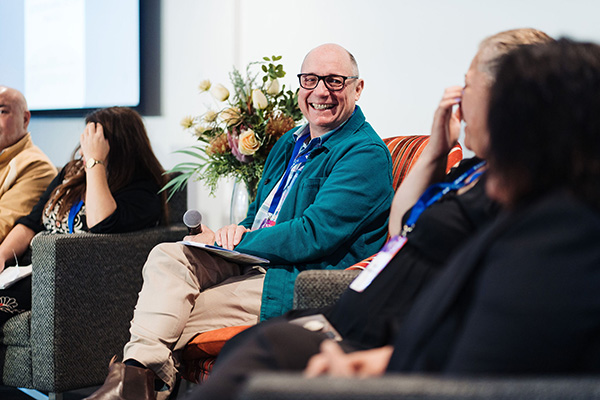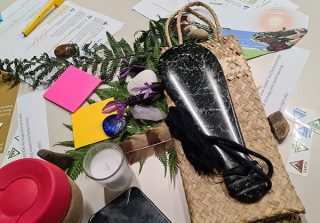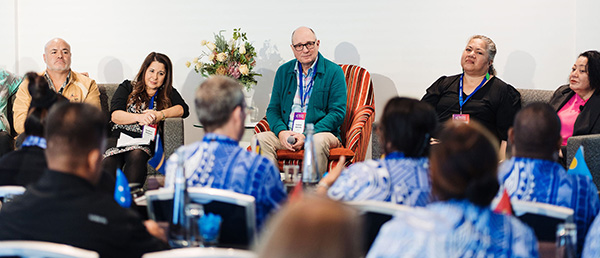Making Space to Build Great Teams
Article by Andrew Melville
Certified TetraMap Facilitator, Leadership and Change Facilitator, Spoke Limited, Auckland |Tamaki Makaurau, NZ.
Meet Andrew
Providing the right physical and psychic space is critical to creating highly functional teams and organisations.
 When facilitating groups, making space for people in a psychic sense makes a huge difference to the successful cohesion of a group and the outcomes they achieve. Disunity, division, conflict and breakdowns are seeded when people feel excluded and unheard, engendering a sense of not belonging. Creating psychic space requires a great deal of listening and a term that gets used in facilitation: “holding space.”
When facilitating groups, making space for people in a psychic sense makes a huge difference to the successful cohesion of a group and the outcomes they achieve. Disunity, division, conflict and breakdowns are seeded when people feel excluded and unheard, engendering a sense of not belonging. Creating psychic space requires a great deal of listening and a term that gets used in facilitation: “holding space.”
“Holding space” takes time to master. It requires a deep commitment to serve others, and to focus on the group in all its diversity rather than on one’s own voice, opinion and ego. It is a subtle skill, but starts with honouring all the voices and ways of expression in a group, and seeking connection, building on the contributions that are offered.
Alongside the intangible practice of “holding space” is the importance of a physical space.
Many places where groups meet are not conducive to people feeling comfortable and free to express themselves. Board rooms, halls, meeting rooms are often set up with a power dynamic, where an individual might sit in a dominating position in the room.
 Skilled facilitators always take care to address the dynamic of a room before anyone enters. There have been many times where I have completely rearranged the furniture of a room to make it more welcoming and comfortable for all. I also make sure that, as a facilitator, I don’t assume a dominating position or posture in the room, moving around, often sitting, or crouching alongside people, and speaking from different corners of the room. The layout of a room can vary depending on the numbers of people and the tasks to be performed. There must be a balance in the room: too chaotic and cluttered will be off-putting for some, too orderly will be off-putting for others.
Skilled facilitators always take care to address the dynamic of a room before anyone enters. There have been many times where I have completely rearranged the furniture of a room to make it more welcoming and comfortable for all. I also make sure that, as a facilitator, I don’t assume a dominating position or posture in the room, moving around, often sitting, or crouching alongside people, and speaking from different corners of the room. The layout of a room can vary depending on the numbers of people and the tasks to be performed. There must be a balance in the room: too chaotic and cluttered will be off-putting for some, too orderly will be off-putting for others.
Catering for all the Elements
From a TetraMap perspective, taking care of the needs of peoples Earth, Air, Water and Fire elements will assist in a group working dynamically. The way a room is set up and the way a facilitator includes different voices will be very important to someone with Water preferences. Ensuring attention to timekeeping, adequate resources and materials, functioning audio visual equipment, and a clear structure will be important to Air Elements. Ensuring the vision, and a sense of enthusiasm and inspiration is present will be important to Fire. Earth preferences will want to see that there is momentum on the outcomes and outputs for the day, so capturing progress in a physical sense, and summarising visibly on a powerpoint, paper, or whiteboard will be important.
 A key aim to establish a good space is to remove distractions, particularly sources of discomfort: noise from elsewhere, hot or cold temperature, uncomfortable chairs and tables, poor room lay out, dirty walls or flooring. If there are distractions or imperfections that are very noticeable, it is useful to draw attention to them, acknowledge them, ask others if they have solutions, and continually check in as to whether the distractions are too overwhelming for everyone to achieve good work.
A key aim to establish a good space is to remove distractions, particularly sources of discomfort: noise from elsewhere, hot or cold temperature, uncomfortable chairs and tables, poor room lay out, dirty walls or flooring. If there are distractions or imperfections that are very noticeable, it is useful to draw attention to them, acknowledge them, ask others if they have solutions, and continually check in as to whether the distractions are too overwhelming for everyone to achieve good work.
I once attended a personal development seminar with more than 100 people in the room. The room was uncomfortable on a number of levels. The facilitator had the courage to halt the whole seminar and ask the organisers to find another room. I remember thinking this was pretty gutsy. It put the organiser on the spot, but the act was taken in service of the group so they could be fully attentive and get the best out of the session.
Critical engagement; Seen and unseen
Creating the right space is crucial. For example, in Te Ao Māori all can benefit from the space settling functions of tikanga, including pōwhiri, mihi whakatau, whanaungatanga, and manaakitanga. Space-making, both physical and psychic will be most effective if due attention is paid to tikanga, not simply as protocol, but as processes that create space for all to feel included, a sense of real belonging, laying a foundation for great contributions from diverse points of few towards creating a greater whole, with successful outcomes for the purpose of the gathering. Making space in the environments we inhabit, seen and unseen is a critical element for people to be engaged.